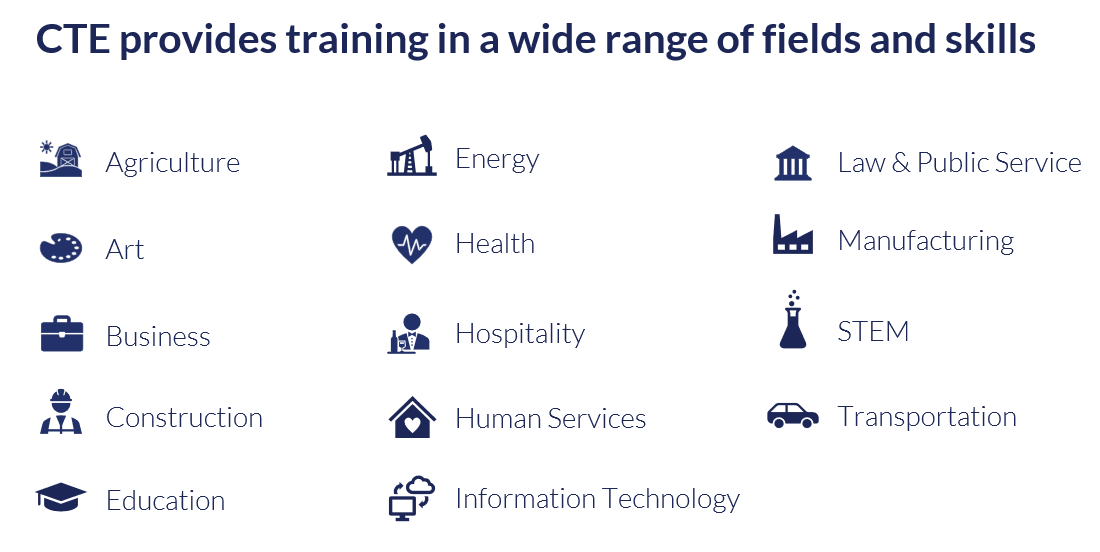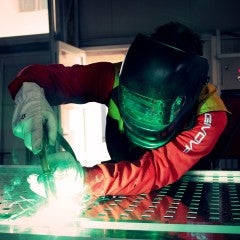The Kinder Institute for Urban Research’s Houston Education Research Consortium (HERC) organized a group discussion on the topic last week. The “Career and Technical Education: Preparing Students for College and Workforce Success” symposium included representatives from school districts, college and career readiness programs, workforce development organizations and members of Houston’s business community.
“Even though school districts, colleges and educational institutions play a huge role in how students are prepared, we all have a role to play in this,” said Gabriela Sánchez-Soto, a research scientist at the Kinder Institute. “Many stakeholders are increasingly recognizing that they have a role to play. There are many routes to postsecondary success, and we all want to think about the many ways in which we can support students in finding careers that are going to earn them a living wage.”
HERC released a series of reports on college and workforce outcomes among CTE graduates in Houston last October. Key findings included that over two-thirds of high school students in the area actively participated in CTE programming, and about half of those students focused their studies on one of three career clusters: business, marketing and finance; health science; and agriculture, food and natural resources.
CTE programming extends well beyond those three clusters, and can include construction, energy, hospitality, law and public service, and many other lines of work. However, program availability is usually determined by where students are going to school.
One person who can attest to this challenge is Andrea Calvo, the director of TRIO Education, an organization that provides career pathways in the electrical industry.
“It really depends on the area, even here in Houston,” Calvo said during the symposium. “In Houston ISD, construction is huge. In Alief ISD, health care is popular because they have a great partnership with Memorial Hermann (Health System). But it really depends on what the student wants. There are so many things out there to help them figure out what they want to do. In Sealy ISD, about 90 students are enrolled in the electrical program, but it’s one of the few CTE programs offered.”
Peter Beard is the senior vice president for regional workforce development at the Greater Houston Partnership, where he oversees the employer-led UpSkill Houston initiative, which aims to strengthen the pipeline of workers for jobs that require more skills than a high school diploma provides but less than a four-year college degree. While Houston may be anchored by energy and health care jobs, there is versatility to be found within those fields, which Beard said is especially important in an economy transitioning from industrial to knowledge-based and technology-enabled.
“We have this wonderful infrastructure that’s based on logistics,” he said. “That’s a huge benefit. How do we help individuals see that those sectors aren’t going away anytime soon? Pick the sector, and then find a place within the sector. Even though we have huge industries here, they’re all being tech-enabled in very different ways.
“When you think about MD Anderson (Cancer Center) or any of the petrochemical plants, they need people who specialize in certain technical spaces. But they also need accounting, finance, human resources and sales professionals.”
Multiple attendees agreed that engaging students with career exploration opportunities is crucial, and that the ability to consider multiple career paths could lead to more long-term success in the workforce.
Kenneth Williams, founder and CEO of the Green Resources & Opportunities Workforce organization, was one of several participants who encouraged employees of K-12 schools to organize career exploration days and eliminate silos across professions.
“In addition to career exploration, we need strategic partnerships with both major corporations and higher education institutions such as Rice University,” Williams said. “There’s a lot of redundant programs happening here in Houston. How do we start to be intentional about creating strategic partnerships across the ecosystem?”
The event, held at the Anderson-Clarke Center at Rice, was part of HERC’s Educational Research Engagement Series sponsored by PNC.





